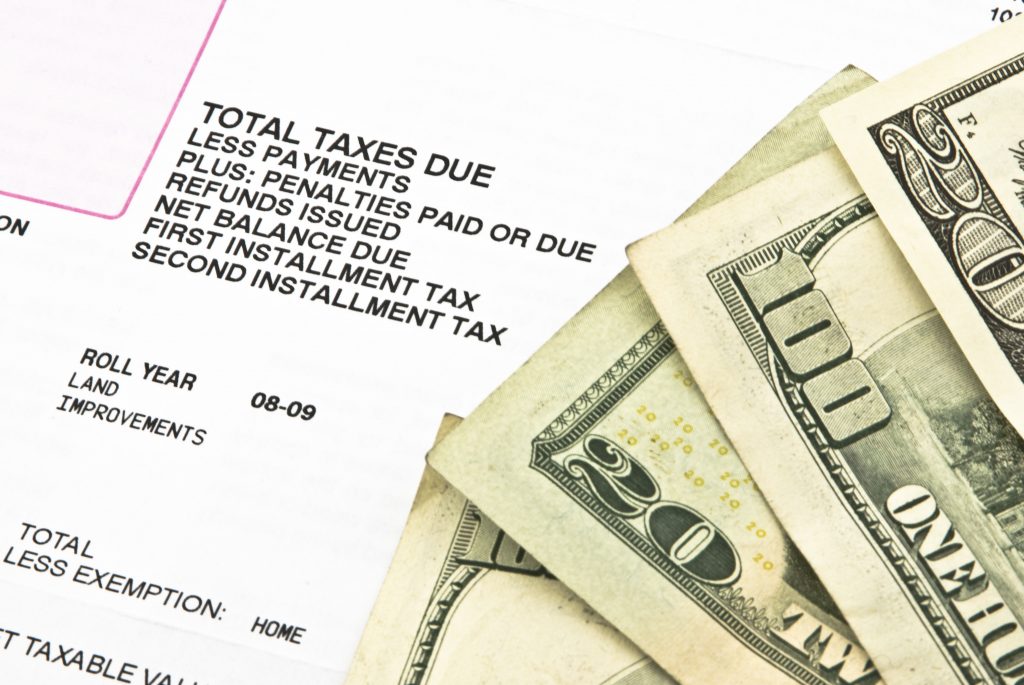
The Dual Liability Provisions for a Responsible Person under California Sales Tax Law

Nevada Return Preparer Sentenced to More Than Three Years in Prison for Tax Crimes
Can an employer avoid the IRS’s proposed imposition of the penalty for “intentional disregrard” of the Form W-2 filing requirements? Yes, depending on the circumstances. The employer may need to show that it did not act voluntarily, that there was reasonable cause for the failure, or that there are significant mitigating factors.

The section of the federal tax code which pertains to the failure to file Forms W-2 with “intentional disregard” is 26 U.S.C. Section 7621(e). As provided in that section:
If 1 or more failures… are due to intentional disregard of the filing requirement (or the correct information reporting requirement), then, with respect to each such failure… the penalty imposed under subsection (a) shall be $500, or, if greater… 10 percent of the aggregate amount of the items required to be reported correctly… .
Intentional Disregard
Courts applying 26 U.S.C. § 6721 and its regulations have held that “intentional disregard” means that a party acted “voluntarily in withholding required information, rather than accidentally or unconsciously.” See Purser Truck Sales, Inc. v. U.S., 710 F.Supp.2d 1334, 102 A.F.T.R.2d 2008 (M.D. Ga., 2008); John C. Hom & Assoc. Inc. v. Commissioner, T.C. Summary Opinion 2015-49. “When a taxpayer makes a good faith effort to comply with tax regulations, intentional disregard penalties are less likely to be upheld.” United States v. Quality Medical Consultants, Inc., 214 B.R. 246, 249 (M.D.Fla.1997); Purser Truck Sales, Inc. v. U.S., 710 F.Supp.2d 1334, 102 A.F.T.R.2d 2008 (M.D. Ga., 2008).
Under this standard, courts refused to sustain the “intentional disregard” penalty in the following scenarios:
1. Where the Forms W-2 and W-3 were prepared but placed on a messy desk and accidentally not filed. American Vending Group, Inc. v. United States, 103 A.F.T.R.2d (RIA) 2009-2181(D. Md. 2009).
2. Where an officer testified that he had mailed the Forms W-2 and W-3 and that if they had not been received by the Service, it was not because of intentional disregard on his part. In re Flanary & Sons Trucking, Inc., 93 A.F.T.R.2d (RIA) 2004-1078 (Bankr. E.D. Tenn. 2004).
3. Where an accounting employee who was responsible for preparing and filing the information returns made a mistake based on inexperience. United States v. Quality Medical Consultants, Inc., 214 B.R. 246, 249 (M.D.Fla.1997).
4. Where a company, having been assessed a prior penalty for failing to file an information return, south to implement a system to spark the filing of the information returns, but the system did not work. Tysinger Motor Co., Inc. v. United States, 428 F.Supp.2d 480, 484-85 (E.D.Va.2006).
Per the IRS’s internal guidelines in Internal Revenue Manual (“IRM”) 20.1.7.8.2 (10-12-2017), “[i]ntentional disregard occurs when a filer who knows, or should know of a rule or regulation, chooses to ignore its requirements.” IRM 20.1.7.8.2 provides that the facts should show the filer was required to file, knew or should have known of the requirement to file, and consciously chose not to file or recklessly disregarded (i.e., ignored) the duty to file a timely and correct information return.
Reasonable Cause for Abatement of Penalty
IRM 20.1.7.12 provides that “an information reporting penalty under IRC 6721, IRC 6722, or IRC 6723 may be waived if it can be shown that the error was due to reasonable cause and not due to willful neglect.” IRM 20.1.7.12.1(7) provides that reasonable cause for the information return penalties generally exists when the filer acted in a responsible manner, there are significant mitigating factors, or the failure was the result of circumstances beyond the filer’s control. As Section 3.c. of of IRM 20.1.1.3.2 states, “[p]enalty relief may be warranted based on an ‘other acceptable explanation,’ provided the taxpayer exercised ordinary business care and prudence but was nevertheless unable to comply within the prescribed time”.
Reasonable cause due to reliance on a tax professional is a dispositive defense to a penalty. See, e.g., Jorgl Ma-Tran Corp. v. Commissioner, 70-T. C. 158, 173 (1978); Pessin v. Commissioner, 59 T.C. 473, 489 (1972); Garcia v. Commissioner, T.C. Memo. 1998-203, affd. without published opinion 190 F.3d 538 (5th Cir. 1999). IRM 20.1.7.12.1(17) provides that the actions of an agent, such as a third party payroll provider contracted to make the filings, can establish that the failure to file was beyond the taxpayer’s control.
Mitigating Factors
Section 20.1.7.12 of the IRM has an extensive list of factors the IRS can consider in determining whether the penalty should be applied or abated. Although not usually part of a reasonably cause defense, per se, the IRS will often consider the filer’s compliance history in making a discretionary abatement of a penalty. Per IRM 20.1.7.12.1 (12), the lack of a prior requirement to file a particular form by a first-time filer is generally considered to be a “significant mitigating factor.” In addition, this section of the IRM provides that a good compliance history with the IRS should be considered.
Conclusion
The IRS can get this penalty wrong outright or can fail to account for factors which can be favorable to the taxpayer. When the IRS is investigating Form W-2 compliance, they could erroneously presume that a failure to file is willful without strong enough evidence to support their position and without complete mitigating information from the business. A best practice is to always keep good records of Form W-2 filings and be ready to fight back.
Posted on 1/26/2020 by Daniel Layton.
Daniel Layton is a tax attorney serving private clients in Newport Beach, California. He is a former IRS trial attorney and former federal prosecutor in the Tax Division of the Los Angeles U.S. Attorney’s officer.

